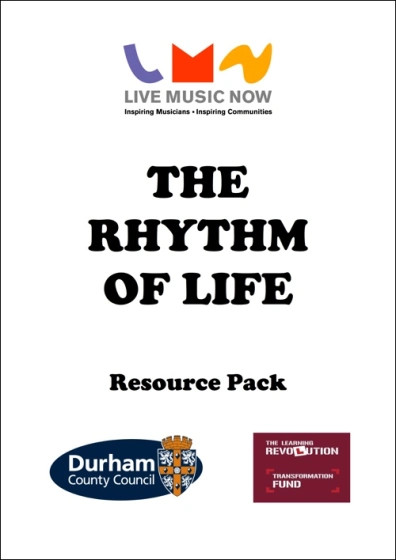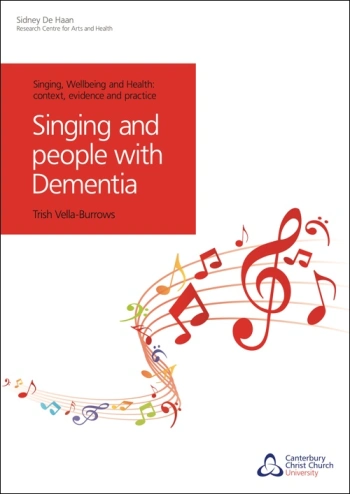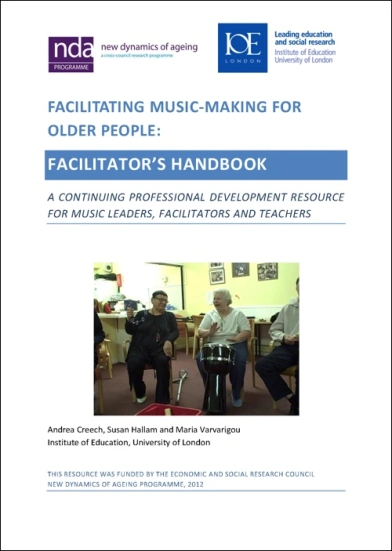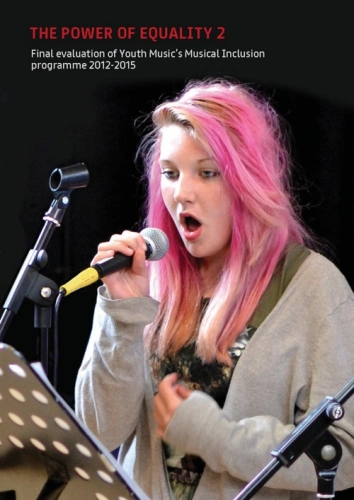How to do it guides
We’ve brought together a great range of key resources from our working group members to help singing in care homes.
The Rhythm of Life Ros Hawley, 2010
This pack was produced from a Live Music Now project encouraging older people in sheltered accommodation and day care settings to create and perform their own songs. The pack helps activity staff and non-musicians develop music work with diverse user groups.
Key sections include:
- Why music? – the basic benefits listed
- Planning and running a session (even if you’re not a musician)
- Practical guide to using instruments
- Creating your own music
- Sample music sessions
- 48 song sheets: Scottish, Music Hall, and Geordie (the project took place in Durham)

Singing and people with Dementia Trish Vella-Burrows, 2012
From the Sidney De Haan Research Centre for Arts and Health, in the series Singing, Wellbeing and Health: context, evidence and practice of booklets with guidance on setting up and running singing groups for people with a range of enduring health issues. They are based on research, leanings from projects, and practical experience.
Key sections include:
- Background information on dementia, policy framework for the care of people with dementia
- How group singing helps – the basic benefits listed
- Evidence of benefits from case studies and research
- Practice guidance: the qualitites needed in the facilitator and in the session; exploration of repertoire issues
- A short note on funding

The Facilitator’s Handbook Andrea Creech, Susan Hallam and Maria Varvarigou, 2012
Hugely comprehensive book from well-known education researchers, focusing mainly on older people who are well (care homes don’t receive a mention).
Key sections include:
- Context of an ageing population, and the importance of activity in later years
- Lists of benefits, quotes from participants
- Evidence of benefits
- Combatting stereotypes
- Qualities of good facilitators
- Teaching strategies and facilitation styles
- Reflective practice
- Using space, problems of venues
- Importance of performance
- Repertoire issues
- Music education code of practice

Useful background
The Power of Equality 2 Kathryn Deane, Anita Holford, Rob Hunter and Phil Mullen, 2015
Comprehensive evaluation of a large-scale programme for children and young people in challenging circumstances. Many of the concepts and practices described in it are equally applicable to work with older people.
Key sections referred to in this toolkit are:
- Reflective practice (Kolb plus)
- Qualities of music leaders (chapter 7 section 1)
- Quality in delivery (chapter 7 section 2)
- Measuring quality (chapter 7 section 6)

We are also pleased to recommend the book “Singing Groups for people with Dementia”, by Diana Kerr – a guide to setting up and running groups in community and residential settings.
You can purchase this online.

